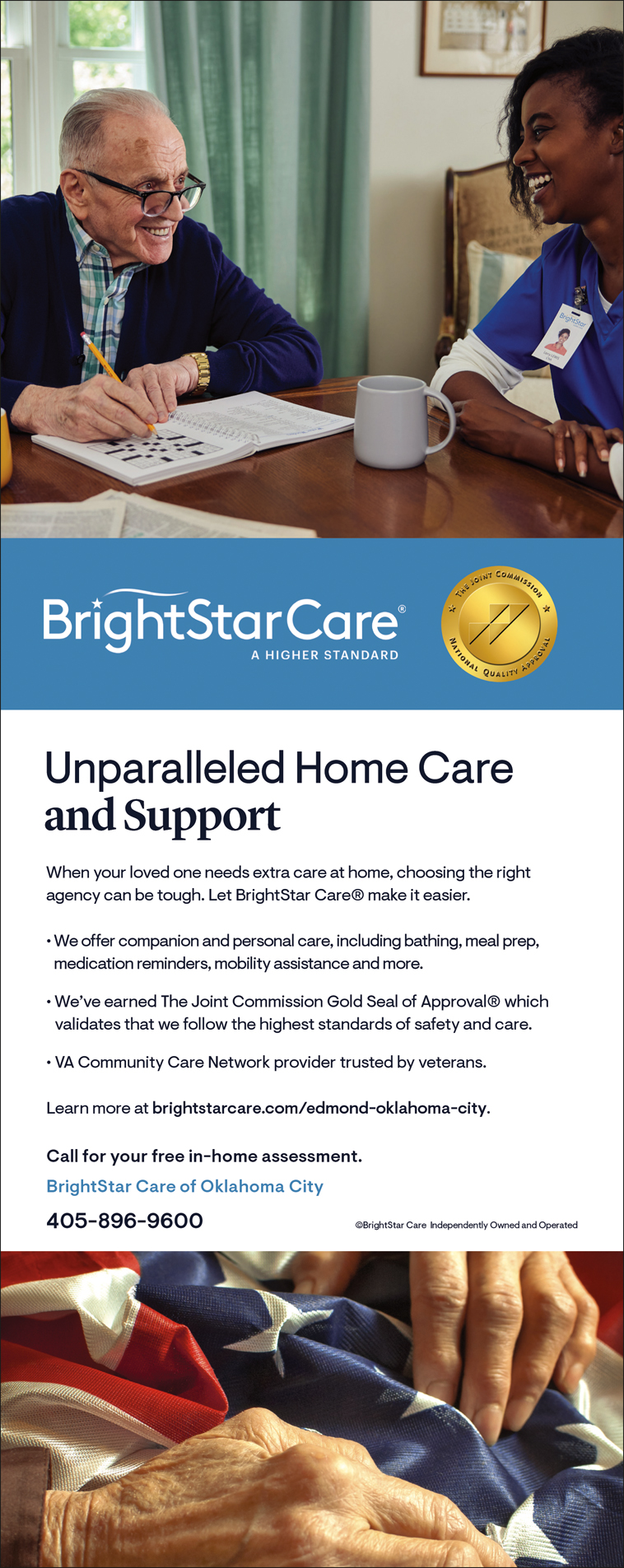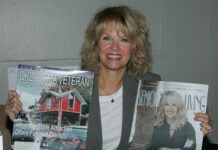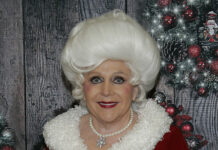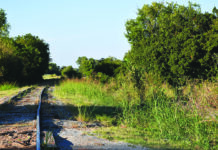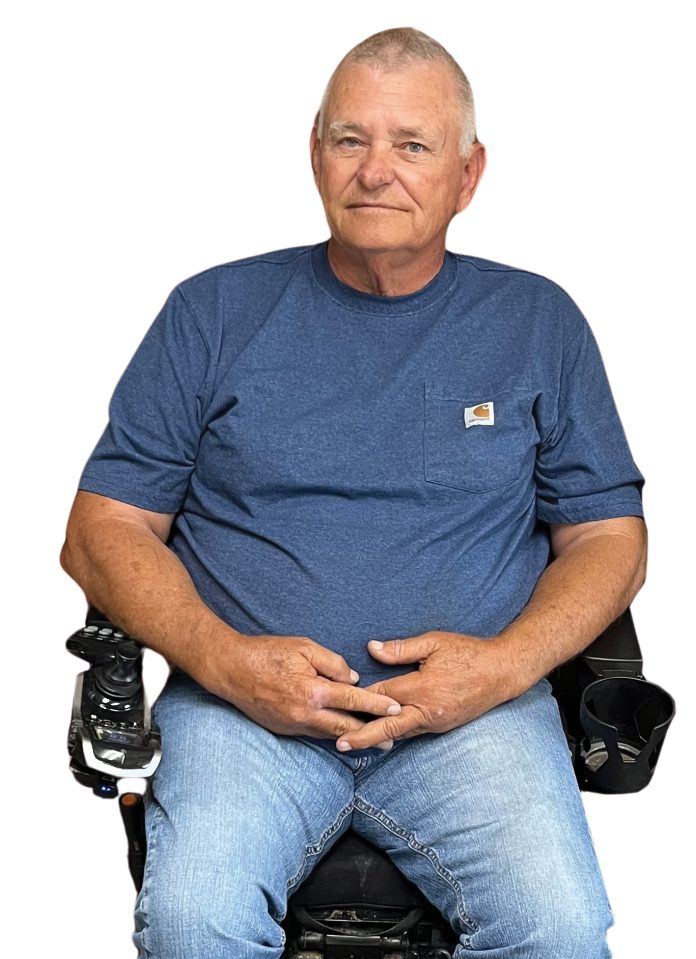
Story by Van Mitchell, Staff Writer
Navy veteran Tom Richey has faced several challenges in his life including being in a wheelchair for the last 50 years due to an auto accident.
But those challenges haven’t stopped him from living his life, and his desire to stay active at age 77.
“Trap shooting is my one and only thing that I still do,” he said. “Like I say, I’m too old to run marathons and play wheelchair sports and stuff like that, but I can compete against anybody. Just hold the gun up and bang. I’m on an equal footing with you. You want to come out and compete against me. We go head-to-head.”
Richey comes from a military family and decides to follow suit.
“My father was in the United States Navy, and so we traveled a lot, and I graduated in 1964 from Mar Vista High School, Imperial Beach, California,” he said. “It’s the most south westerly city in the continental United States. In 1964 Vietnam became a war, and I joined the Navy. They offered me a pretty good program way back in the sixties, nuclear power.”
After boot camp, Richey attended Nuclear Power Basic School in Idaho before finishing up in nuclear power submarine school.
Richey spent his entire 9-year Naval service working as an electrician on submarines, working 18-hour-days while at sea.
“I started on my first submarine, the Flasher, then my next ship, the 640 class Benjamin Franklin,” he said. “I got transferred to 623 and 624, which are Hale and Wilson. And then my last submarine was a new construction of the 684, which was the last submarine named for a fish. All those after that were named for city, different class submarines. I’ve been around the world three times, been in every major body of water, except I’ve never been in the Mediterranean.”
After nine years, Richey said he was ready to leave the long-working days on submarines and rejoin his wife and children back in Oklahoma.
Richey said the ride home to the Sooner state from Connecticut took longer than expected due to gas rationing across the country in December 1973.
“I started out driving from Connecticut, driving towards Oklahoma, and I had no idea that we had something called gas rationing,” he said. “It took me a week to get from Connecticut to Oklahoma.”
Richey landed a job in Oklahoma working as an engineer in the oil industry before the car accident that changed the trajectory of his life.
“On Feb. 3,1974 I went to work Monday morning. I got injured going home,” he said. “The steering gear separated on the truck. The steering wheel didn’t control the front wheels. The road had been graded. There was a triangle of dirt running down one side. They hadn’t smoothed all the way out. The left front tire caught that soft dirt. I was thinking about jumping, because coming up was a one lane, wooden ridge, no guard rails. Without control, it looked like that truck was not going to make it across the bridge. Just as I was thinking about jumping, the truck slid. I’m injured. I’ve been in a wheelchair for over 50 years.”
While recovering in the hospital, he was asked whether he was a member of the Paralyzed Veterans of America (PVA), which he was not, but was given a one-year free membership while he was rehabbing.
The Paralyzed Veterans of America (PVA) is a congressionally chartered veterans service organization specializing in assisting and promoting a full lifestyle for veterans affected by spinal cord injury or neurological disease.
The PVA was formed in 1946. The key objective of PVA is to take action necessary to restore spinal cord injured or diseased veterans’ bodies and life potentials as closely to those not suffering spinal cord dysfunction. This is accomplished by the coordinated efforts of the PVA organization through programs that do the following:
• Advocate for and monitor the delivery of high quality and appropriate health care benefits and services.
• Assist in identifying and securing veterans’ benefits and other benefits for spinal cord injured and diseased veterans and others as appropriate.
• Promote medical research to cure spinal cord dysfunction and other related issues.
• Educate society on the attitudinal, physical and legal barriers confronting persons with disabilities and to influence the removal of those barriers.
• Provide information and opportunities for the promotion of health, employment, sports and recreation, social services, and camaraderie for spinal cord injured and diseased veterans and others as appropriate.
• Provide cooperation and seek the support of other groups and individuals who share PVA’s objectives.
• Acquaint the public with the current and ongoing needs of America’s veterans and
• To acquaint the public with simple and effective means for reducing the risk of preventing spinal cord injury.
• To promote involvement of the public in national and local activities that support PVA’s mission.
Richey later became a certified nationally registered benefits officer for the PVA.
“I did that for several years and offered aid and assistance to really disabled veterans,” he said. “I did a lot of visitations in the VA hospitals doing the same thing that the guys did for me when I was injured. I started doing it for them, the next generation.”
Richey helped start the PVA chapter in Oklahoma.
“I was the vice president for a year and was then elected as a national director,” he said. “And I did that for 20 years.”
During his time with the Oklahoma PVA, he helped with finding ways for PVA chapters to make money to help disabled veterans.
The result was the creation of Stor-Mor Mini Storage located at 7600 N. Rockwell Avenue in Oklahoma City.
“We were looking for a way of funding money for the chapters so they could make money,” Richey said. “The national office partnered with the state PVA office and we got a loan for construction, purchased the land and did all of this. We designed this part of the living quarters, wanted it set up so that one of our members could run it. Beverly and I took it over the first day of May (from previous managers).”
Richey said he is now at the point in life where he needs assistance with his daily routines. He receives help from Brightstar Care of Edmond/Oklahoma City located at 3000 United Founders Blvd. No. 103G in Oklahoma City.
“Getting older, I’ve really slowed down,” he said. “Brightstar gives me the opportunity to live almost independently. The VA has classified me as housebound and pretty much I am. Brightstar is the company that the VA connected me with to give me a home health aide.”
Cynthia with Brightstar is Richey’s home health aide.
“Cynthia has been with us for a long time now,” he said.” She wakes me up, helps me get up out of bed, go through my morning routines, and then cooks breakfast, makes the beds, lays out my clothes. I don’t have to go live in a nursing home. Brightstar has allowed me to live here on my own. Without them, I’m not exactly sure where I would be.”
For more information about Brightstar Care call
(405) 896-9600 or visit
https://www.brightstarcare.com.





